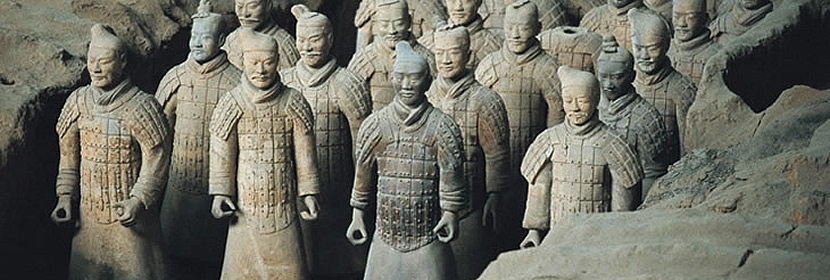
Biography: Dr. Ambida has been an international paper presenter and an international visiting lecturer. Aside from his active involvement with the environment and language development advocacies of Language Education and Development (LEAD) Asia Community of Practice (CoP) which is based in Bangkok, Thailand, he also ventures in Massive Open Online Course (MOOC) provided by University of Oregon in partnership with United States Department of States and Coursera. He is a trained facilitator, Licensure Examination for Teachers (LET) reviewer, Internal Quality auditor, university textbook author, a TESDA assessor, and a consistent top performing faculty. He serves as a thesis and dissertation consultant/adviser to graduate students from various higher education institutions. He attended numerous academic and professional trainings and seminars both on the national and international arena and at the same time holds and sustains various key positions in the Lyceum of the Philippines University-Manila.
Aside from having academic linkages abroad, he is also visible in different community exposures where he has facilitated in community organizing, capability building and linguistically capacitating the indigenous people such as the Agtas and the Dumagats from certain provinces in the Philippines. He shows a deep sense of committed in helping the IPs where he takes an active role with the university’s Community Outreach and Service Learning (COSeL) in collaboration with the National Commission on Indigenous People (NCIP) and the Department of Education (DepEd).
Dr. Ambida’s extensive professional experience and interpersonal competence leave nothing but commendations in the field of teaching, research and extension as well as in educational management. With a Ph.D. in Education Major in Educational Leadership, he also holds the Best Dissertation Award.
Topic: Transformation of Higher Education Institutions towards a Globalized System
Abstract: Higher Education Institutions in the Philippines are being confronted by transformations caused by a process of interaction and integration among different nations driven by international commerce. With the modified global learning, colleges and universities have to capacitate themselves to offer quality degree programs which will be attuned to world class standards. The Commission on Higher Education in the Philippines has supported the development of higher education institutions by engaging them in the process of promoting a culture of international quality. The study conducted determines the compliance of the subject universities on certain standards of a university system as aligned to becoming a globalized structure. The study is anchored on the framework of Provus’ Discrepancy Model for Curriculum Evaluation Method. Based on this pattern, particular discrepancies can be determined and resolved between a pre-determined set of standards and what actually the current status of a particular area being studied (Brady, 1983). A survey was conducted to ascertain the extent of compliance of some university campuses to the standards of a University System. The respondents of this study are composed of university presidents, vice presidents for academic affairs, planning officers, deans, directors, heads, coordinators, faculty representatives and student Leaders from universities and colleges that belong to university systems. The continuing development plan crafted by the researcher could be a significant basis for other institutions to transform towards a globalized system.

Biography: Zuochen Zhang, PhD, is Professor in the Faculty of Education at the University of Windsor, Canada. He has taught Learning with Technologies, and Computer Studies courses for the Teacher Education program; Information and Communication Technologies (ICT) for Teaching and Learning, Educational Research, and e-Learning and Education courses for the Master of Education program, and Cognition and Learning for the Educational Studies PhD program. Dr. Zhang’s research interests include ICT integration into school curriculum, e-learning, teacher education, Teaching English as a Second Language (TESL)/Teaching English as a Foreign Language (TEFL), and international education. He has served as reviewer and editor for a number of international journals.
Topic: Publishing in International Journals: Perspectives of an ESL learner
Abstract: Publishing in high-quality international academic journals is challenging for most, if not all, researchers, and the challenge is often greater for those whose first language is not English because of the language barrier they may have. Based on his experience in the past decade as an author, reviewer, and editor for a number of international journals in social sciences and humanities, this talk aims to share with the audience strategies that could be employed regarding writing and publishing research papers in peer-reviewed international academic journals.

Biography: Dr. Warren A. Ramos is a Regional Education Supervisor in the Policy, Planning and Research Division in the Department of Education-National Capital Region. He is currently connected at American Educational Research Association, International Association of Multidisciplinary Research and ASEAN Graduate School Research Association as Journal Reviewer. Dr. Ramos has presented and published Researches in Local and International Conferences on Pedagogy, Assessment, Research, Monitoring and Evaluation in Education. He is also teaching Research, Program Monitoring and Evaluation, Educational Legislation and Statistics in Our Lady of Fatima University Graduate School. Dr. Ramos is providing technical assistance as lecturer, discussant, panelists, coach, adviser, assessor, consultant of RESEARCHES in the Department of Education and external partners. He was awarded as Outstanding Researcher at World Research Festival in 2014 and Best Research Presenter at ASEAN Graduate School Conference in Thailand and International Teacher Education Conference at United Arab Emirates and International Conference on Teacher Education by Australian Government. Recently, one of his researches was presented as awarded as exemplary action research project at International Conference for Teacher Education by the Australian Government and University of the Philippines. He is currently working on strengthening the research culture in basic education in partnership with other research institutions and multi-stakeholders.
Topic: The Power of Monitoring, Evaluation and Plan Adjustment Technology in Policy, Planning and Research in Education
Abstract: MEPA stands for Monitoring, Evaluation and Plan Adjustment (MEPA). It is a funded project of Australian Aid via Basic Education Sector Transformation which aims to systematically determine barriers, bottlenecks and opportunities to access, efficiency and quality of education that contributed to high and low key performance indicators (KPIs). In this study, the utilization of MEPA tools such as dashboards, segmentation, Pareto analysis and forecasting enable the Department of Education-National Capital Region-MEPA team to realize its importance and implications, particularly in the changing landscape of educational policy. The dashboards revealed findings that there were alarming trends in the key performance indicators (KPIs) primarily on School Leavers and Achievement rate from 2010-2014. From the Pareto analysis, the three big Divisions of City Schools in the Region were identified to be part of the “vital few” and should be prioritized in terms of Regional and Division Initiatives. Moreover, the use of forecasting tools has helped the NCR to determine the regional, division and school targets for future KPI’s. In the Division –MEPA, the schools to be prioritized were identified using segmentation techniques. Furthermore, the results of the study would be used as inputs towards plan adjustment and continuous improvement of PPAs in the implementation of K-12, consequently institutionalizing MEPA in all levels of governance of the Department of Education- National Capital Region.

Biography: Professor M. Mammen’s qualifications are B.Sc, Higher Diploma in Education (Postgraduate), B.Ed, M.Sc and PhD. She has over 40 years of experience in education and research and has taught in India, Kenya, Zambia and South Africa. She is affiliated to the University of Fort Hare (South Africa). She has presented several papers in national and international conferences and also has several publications in conference proceedings and international journals. She is a FAIMER Fellow.
Topic: Scholarship of Teaching and Learning (SoTL) for the 21st Century
Abstract: Scholarship of Teaching and learning (SoTL) is a topic of contemporary relevance. Most definitions of SoTL regard it as an ongoing cycle of systematic inquiry using discovery, observation, reflection, and evidence-based methods to research not only effective teaching but also student learning. Boyer’s Paradigm explains SoTL as a critical reflection on teaching in order to improve the process and product of teaching. SoTL regards peer-review of ‘teaching’ (the process) and ‘student learning’ (the product) and sharing the results with peers as pertinent. The shared knowledge then becomes part of the knowledge base of teaching and learning in higher education. The essence of SoTL lies at escalating ‘teaching’ to ‘scholarly teaching’ and then to ‘SoTL’. All teachers have a professional obligation to practise SoTL. The reflections on teaching and related research findings contribute both locally and globally to understand and improve teaching and learning. The significances of SoTL are mainly five-fold: (a) breaks down barriers between research and teaching; (b) yields an opportunity for teachers to frame their existing responsibilities as an investigation; (c) allows teachers to present positive educational innovations to peers to stimulate critical reforms; (d) helps to raise the status of teaching and enables teachers to teach more knowledgeably besides providing a framework through which teaching quality can be improved; and (e) provides the potential to bring about significant changes on how the sector sees the goals and purposes of HE. SoTL has four ascending levels in the area of academic development: micro- (professional teacher growth), meso- (faculty growth as a collective), meta- (institutional) and mega-levels (collaborative research outputs and national and international publications). The first two levels ‘micro’ and ‘meso’ are judged as of low-tier value, the third is of mid-tier value and the fourth ‘mega’ is of high value. Since students come from the communities around, SoTL encourages the inclusion of community-engaged teaching and learning. Furthermore, amongst others, a project design that reflects the interests and appropriate methods within one’s discipline, ways to share and expand the relevant outcomes and escalating them to global knowledge are essential ingredients of SoTL.







